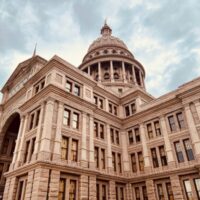Special Sessions

In the 88th Regular Legislative Session, 8,046 bills were introduced and 1,246 were passed. In addition to the regular session, the Texas Constitution grants the governor the authority to convene special sessions as deemed necessary. Unlike other states, where the legislature may call itself into session, only the governor of Texas may call the Texas Legislature into special session. The governor has the discretion to determine the agenda and may call as many sessions as necessary.
Special sessions most frequently occur to complete unfinished tasks, which were often delayed by conflict between parties. During a special session, the legislature can only consider and vote on the specific issues or matters outlined in the governor’s call for the session. The governor can issue multiple calls for special sessions, each addressing different topics or extending a session to address additional matters. Each special session may last for no more than thirty days.
When the 88th legislative session concluded, the Governor immediately issued a proclamation calling the legislators back on May 29th for a special session focusing only on cutting property taxes and cracking down on human smuggling. The Texas Constitution does not place time limits on the governor’s power to convene special sessions, and they may be called back-to-back.
Current headlines state that the legislature is experiencing a “special session standoff.” This standoff occurred when the Texas House adjourned sine die May 30th after passing bills on property taxes and human smuggling, and before the expiration of the thirty-day deadline. The House and Senate differ on the best way to cut property taxes. The early adjournment leaves the Senate to either accept the House versions of the bills or pass no legislation during this special session. The Senate has continued to pass other bills relative to the governor’s proclamation, including amendments to a house bill relating to the punishment for certain criminal conduct involving the smuggling of persons or the operation of a stash house. Those amendments must also be approved by the House, which is not possible because that body adjourned early.
This practice of adjourning early differs from standoffs or holdout of prior years, such as the holdout when over 50 legislators left the state to prevent a quorum in the House and remained absent for 38 days in the summer of 2021. The legislators went to Sterling, Virginia to deny the GOP majority a quorum to conduct business. That standoff was declared to be one of the few – and lengthiest—quorum breaks in modern Texas history. Before that, almost all of the House Democrats were missing in May of 2003 when the battle between the parties was over redistricting. More than 50 had fled to a motel in Ardmore, Oklahoma. When the time for voting on the redistricting bill expired, the missing legislators returned to Texas. Governor Perry then called a special session, upon which eleven Senate Democrats fled to New Mexico to stop the vote again.
Please do not rely on this article as legal advice. We can tell you what the law is, but until we know the facts of your given situation, we cannot provide legal guidance. This website is for informational purposes and not for the purposes of providing legal advice.
